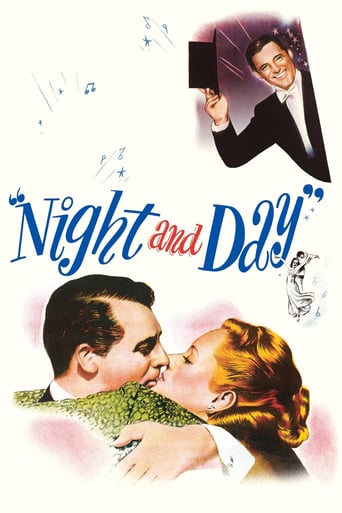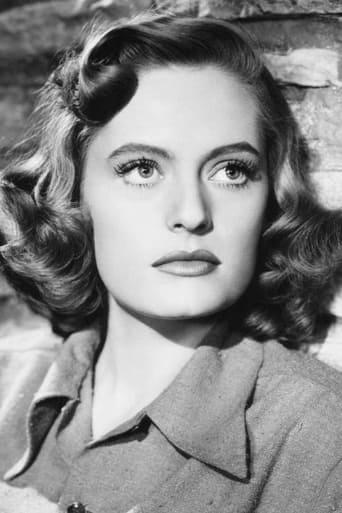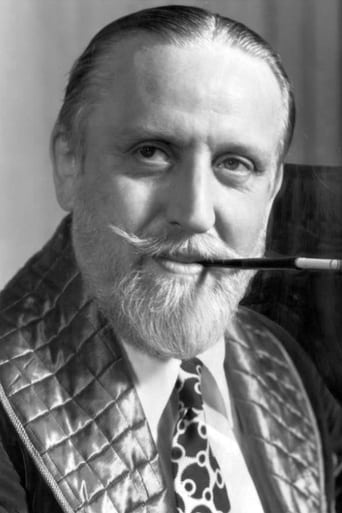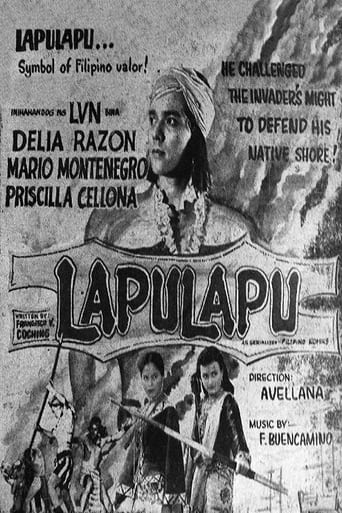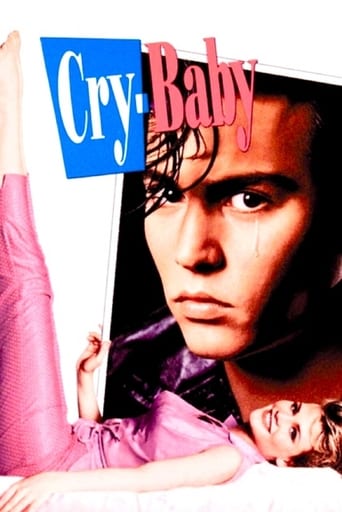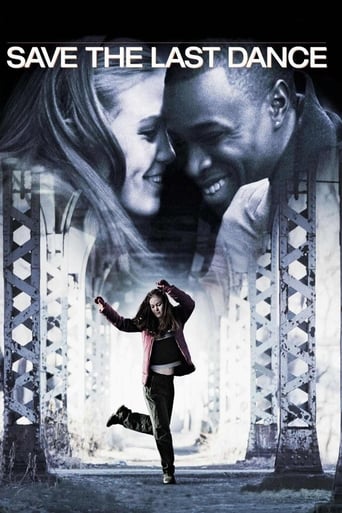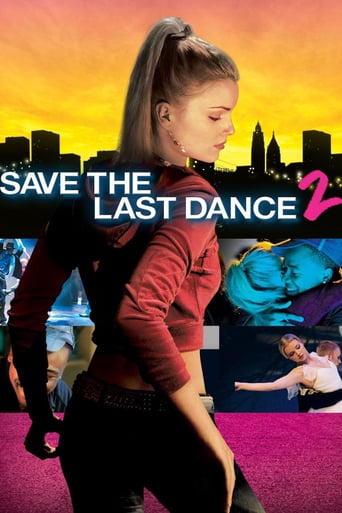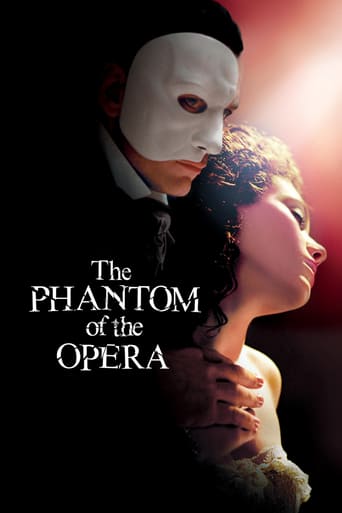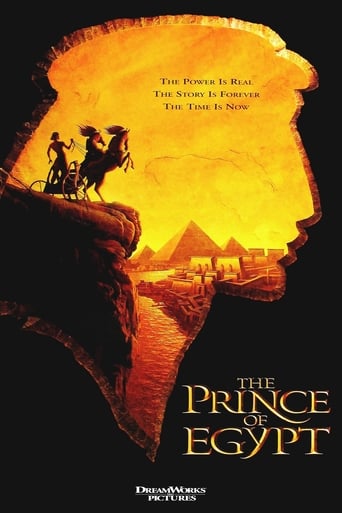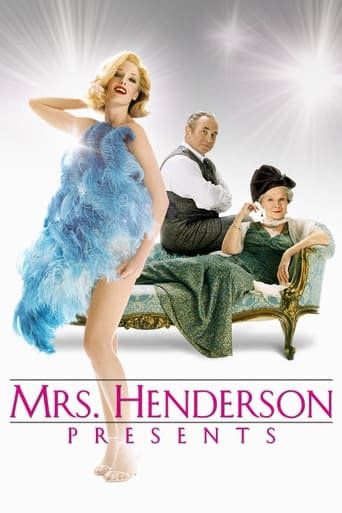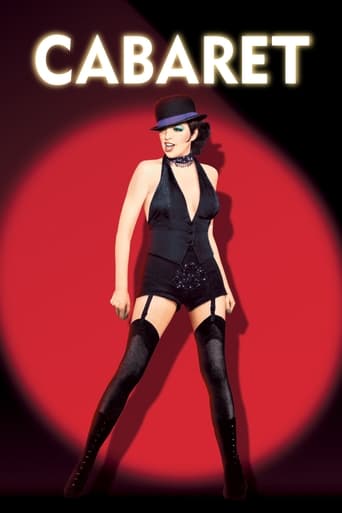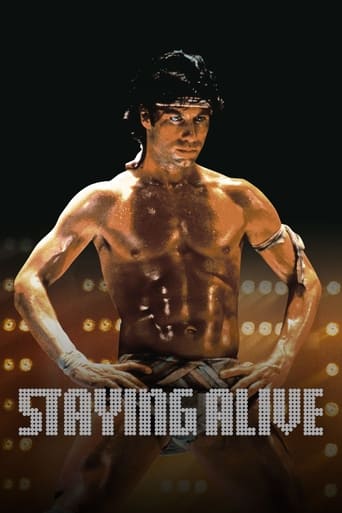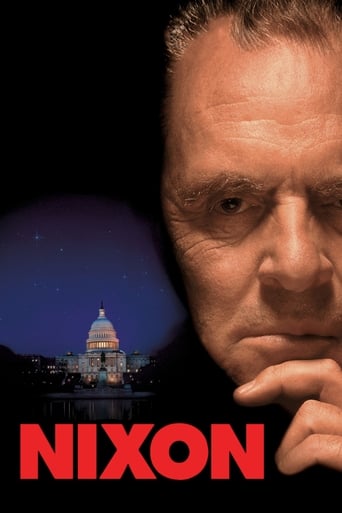Night and Day (1946)
Swellegant and elegant. Delux and delovely. Cole Porter was the most sophisticated name in 20th-century songwriting. And to play him on screen, Hollywood chose debonair icon Cary Grant. Grant stars for the first time in color in this fanciful biopic. Alexis Smith plays Linda, whose serendipitous meetings with Porter lead to a meeting at the alter. More than 20 of his songs grace this tail of triumph and tragedy, with Grant lending is amiable voice to "You're the Top", "Night and Day" and more. Monty Woolley, a Yale contemporary of Porter, portrays himself. And Jane Wyman, Mary Martin, Eve Arden and others provide vocals and verve. Lights down. Curtain up. Showtune standards embraced by generations are yours to enjoy in "Night and Day."
Watch Trailer
Free Trial Channels
Cast


Similar titles
Reviews
Most undeservingly overhyped movie of all time??
Absolutely Fantastic
In other words,this film is a surreal ride.
This movie feels like it was made purely to piss off people who want good shows
Cary Grant and that it contains songs by Cole Porter and a film about him are reasons enough to see Night and Day. For anybody wanting something completely accurate they're better off reading a Cole Porter biography, for Night and Day does gloss over his homosexuality(considering the time it was made though this was completely understandable) and reduces the tragic riding accident that Porter never recovered from.If you however take the film for what it is, which is always a fairer way to judge, you should find some enjoyment out of it. From where I'm standing, Night and Day, despite being formulaic with some at times corny scripting and a few parts that drag a little, is a very nice film. It is beautifully made with ravishing Technicolor, sumptuous costumes and equally gorgeous photography, and Michael Curtiz shows that he was more than up to the job, directing with his usual sophistication and class. Night and Day also features a wonderfully sweeping score that deservedly received an Oscar nomination and Cole Porter fans will be in heaven with the songs, most of them being among his best featured here. Porter's music is some of the best ever written, in musicals and in any kind of music, and Night and Day do them justice, being entertainingly staged(even the slightly bizarrely set My Heart Belongs to Daddy) and well performed by the likes of Mary Martin and Ginny Simms, even Grant doesn't do too bad a job.Night and Day contains parts that are very funny, thank goodness that they didn't gloss over Porter's wit(though they could have had even more of it), and others that are quite touching, like the composition of Night and Day in a French hospital. The story like the script is not perfect, but it's neatly told, entertains and has heart, it also doesn't make the mistake of being dull. The film may be fictionalised, but you're engrossed in the story regardless. The casting's unusual but in terms of performances the cast do a marvellous job. Cary Grant is very charming and enigmatic in the title role, playing the role with sympathy and wit(an important trademark of Porter's and a large part of Grant's overall charm). Alexis Smith is beautiful and elegant and is as sympathetic as Grant and Jane Wyman allures too. Monty Woolley, Mary Martin and Ginny Simms acquit themselves brilliantly too. Overall, a very nice film when taken for what it is. 8/10 Bethany Cox
Those looking for a biopic of Cole Porter would be better served elsewhere. This is the 1946 version of his life and it leaves out a lot of truth and stylizes the rest. The ending of the film gives those in the know a clue. When his wife (Alexis Smith) runs into his arms all excited, the camera shows that he isn't really as glad to see her as she is to see him. Maybe, that is because she left him, not for being a workaholic and ignoring her, as the movie suggests, but because his homosexuality was becoming more open in Hollywood.But, despite the glossy image of Porter, it was still a worthwhile film and it did get an Oscar nomination for the music, which should be no surprise to anyone. Porter's music is some of the best written and performed in the country and there are almost twenty of his songs featured in the film, some sung by Jane Wyman, the only Oscar winner that was the wife of a future president.Cary Grant is magnificent as Cole Porter. He makes the film worth viewing for his presence alone.
I remember seeing this silly bio. of the great Cole Porter on our small black and white TV when I was a kid and not liking it much. Now years later a pristine DVD of the film is now available and I still do not like it. Actually I hated it. Of course the no.1 reason for my disliking it is the total fantasy that Warner Bros. came up with as "the life of Cole Porter." The cast tries hard but everything is so wrong about this film that I sat there shaking my head. Maybe in 1946 movie audiences were more accepting of this kind of crap, but come on Cary Grant as Cole Porter?? Of course all the gay stuff hangs over this movie big time. Porter was gay, Grant was gay Monty Wooley was gay, and from what I've heard Alexis Smith was a closet Lesbian. They must have had a hoot making this one. Needless to say the period costumes, decor etc are all wrong and Porter's great music deserved better singers than Ginny Simms or Jane Wyman. The only nice moment for me was Mary Martin (another closet Lesbian) doing My Heart Belongs To Daddy. This movie really needed Ethel Merman (another bi lady) to give this 500pd Easter Egg some life. Unfortunately the more recent movie bio De-Lovely or De Lousy isn't much better. A shame because Porter was one of the great composers of the Broadway Stage.
If Cole Porter were to be shown in any film accurately you need a Don Knotts type with a bit more polish. Unlike his friend and rival Irving Berlin (who did not mind showing up in one movie as himself: THIS IS THE ARMY) Porter had this image as a sophisticate that physically he fit if you recall that not all sophisticates look like Fred Astaire or other Hollywood types. As a matter of face, if Porter did not look physically like Astaire (an old friend) or Cary Grant, he also did not look like Kevin Kline, in the interesting recent film DELOVELY which opened up more about Porter's homosexuality and his co-dependent relationship with his wife Linda.That said, Porter is on record as having loved the musical film NIGHT AND DAY. When his friends pointed out all the errors he brushed them aside with the comment that any film where Cary Grant portrayed him had to be good. No fool our Cole.Although it gives the barest outline of Porter's career, and makes some whopping errors, it does give a basis for further study into his life for anyone interested in the most sophisticated American song writer of the period from 1928 - 1958. His music was not as remarkable as George Gershwin, but George required brother Ira to do his lyrics, as much as Richard Rodgers required Lorenz Hart and Oscar Hammerstein, or Jerome Kern needed Hammerstein, or Frederick Loewe needed Allan J. Lerner. Only Berlin and Porter did words and music solo (Rodgers would do one musical by himself - NO STRINGS - after Hammerstein died).He was born in Peru, Indiana, his grandfather being a multi-millionaire in the lumber trade who wanted him to be a lawyer (and sent him to Yale for that reason). His years in Yale were pleasant and even artistically sound. He composed "Eli, Eli Yale" and "We Are Poor Little Lambs" which are still sung by their glee clubs.* *"We Are Poor Little Lambs" is a rare exception in Berlin's career of total song writer. He retouched the original lyrics, which are from the BARRACK ROOM BALLAD "Gentleman Rankers" by Rudyard Kipling. Kipling, by the way, was not too thrilled about it.After service in World War I (as said on another comment, he was not wounded), Porter began trying to break into Broadway. Oddly enough his first serious work was in 1921 when he did a musical satire about American life from the point of an immigrant. But the musical did not succeed, and the music is now lost. He spent the rest of the decade only composing music for friends on the Riviera (yes his was a very hard life). It was not until 1928 that he began to try his hand on Broadway, and remained for three decades.By now he was also married to Linda (Alexis Smith in the film) who appreciated his personality and wit, and his talent. It appears to have been what is called a "white marriage" where they stuck it out loyally together from mutual respect and affection, but not sex - each went separately there, but always returned to each other.This of course is not in the film. But the 1938 horse riding accident is in it - which left him in actually constant pain for the rest of his life. For a pampered sybarite Porter was quite a brave man.The parts about this film that enable one to enjoy it are such musical bits as Mary Martin returning to do the "Siberian Railroad" Sequence from a musical that she introduced "My Heart Belongs to Daddy", or the dramatic moments like the death of grandfather Henry Stephenson. Grant and Smith are smashingly good as Cole and Linda (at least as Cole liked the public to think of them). And Monty Wooley does his best playing his charming and straight talking self (note how he uses the same speech to sell Cole's Broadway shows to potential backers and producers). For a film that one knows is not true as a biography, it remains the best fictional biography of a popular composer made in Hollywood in the Golden Age of film making.

